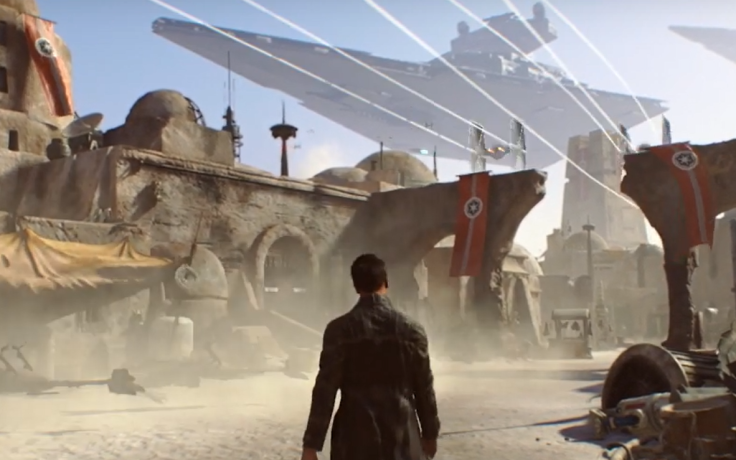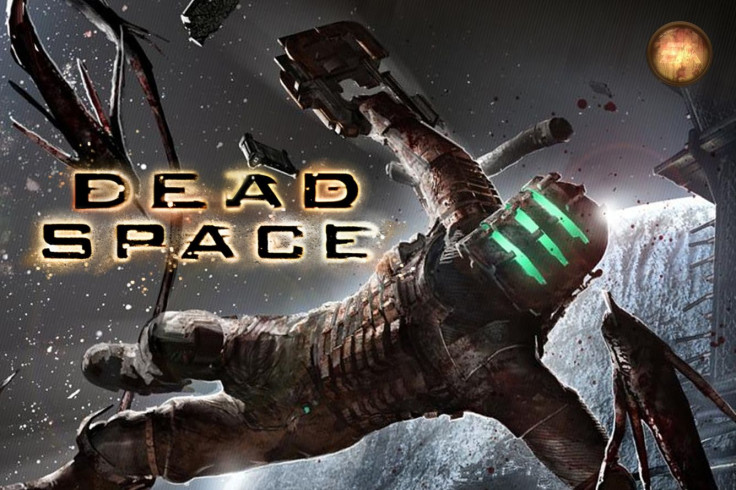It’s a miracle that Dead Space was even released. Ian Milham, Art Director on Dead Space at Visceral Games, explained to me during an interview in a boardroom overlooking the gorgeous San Francisco bay. His studio, Outpost Games, just released SOS, its first title on Steam Early Access, but it was a long journey to get here.
It was 2007, and Visceral (then called EA Redwood Shores) worked in the same building as big franchise titles for The Simpsons, The Godfather and Lord Of The Rings. Unlike Dead Space, which was an internal title, these licensed games were contractually obligated to be released on tight deadlines. “If we screwed [Dead Space] up, or they just needed our people, we were done,” Milham said. While everyone’s focus was on these lucrative, but demanding, cash grabs the Dead Space team worked slowly and carefully. They knew their game could have been cancelled at any time, even if it had nothing to do them.
At EA, and pretty much every other major AAA developer, some games never make it to the finish line. “If you work at EA long enough, it happens a lot,” Wright Bagwell, Lead Gameplay Designer on Dead Space said. “I worked on five or six games that got cancelled, after a while you just realize how the games business works.”
Dead Space sold over 2 million copies and received glowing scores from video game reviewers. The creepy sci-fi shooter spawned two full sequels, multiple animated films and there were even talks to make a live-action movie adaptation.
Rolling off the success of Dead Space, Milham and his team felt they now knew how to make awesome games. Their team had just accomplished the impossible and was ready to take on an even bigger challenge. For around a year of pre-production, they worked on a game “that wasn’t so sci-fi.” It took place on earth and might have included zombies. It would use a lot of the same game play mechanics as Dead Space, but focused more on a “cool and compelling” story. Then, The Last Of Us trailer was revealed at the 2011 Video Game Awards, and Visceral’s game was cancelled shortly thereafter.
“I called up friends at Naughty Dog and called them sons of bitches,” Milham said.
Visceral Studios also developed one of the most famous and publicized game cancellations at EA: Ragtag, a Star Wars take on the action/adventure genre featuring dashing rogues and epic space battles. “It’s very easy from the outside to say ‘Star Wars, who doesn’t want that game?’ but there were a ton of different factors,” Milham said.

Milham worked on Amy Hennig’s Star Wars vision until development abruptly ended. This was the fate Dead Space avoided, a cancellation he believes was entirely out of their control. “I don’t think that project had a specific downfall other than not having enough done fast enough to make an inarguable case against the winds of fate,” he said.
Visceral Studios closed on October 17, 2017, though Bagwell and Milham had long since left the company by then. The studio based in pricey San Francisco is required to make hit after hit. “It’s expensive as hell here and if you’re a giant corporation like EA and you have a huge employment base somewhere much cheaper, like Montreal, the office here is going to have to be great at something,” Milham said. “I don’t blame anyone, I just feel shame because a ton of cool stuff has come from there and cool stuff was going to come from there too.”
Modern blockbuster titles cost millions to produce, with hundreds of developers, artists, designers and programmers working on the project full-time. These investments can’t go to waste, so killing a game in its infancy saves a lot on marketing, fine tuning and other future expenses. Huge game studios can’t take risks by messing around with creativity when there are investors to appease and people whose jobs depend on a game’s success.
“These giant corporations are spending millions to stay on top of the heap and if you’re going to spend unbelievable amounts of money, which is risky, you are going to need to make even more money,” Milham said. “You are going to have to appeal to as many different people as possible on planet earth.” Adding endless multiplayer modes, safe but generic gameplay and unlockable cosmetics can make a game alarmingly lucrative, like Overwatch and PlayerUnknown’s Battlegrounds .
Expensive special editions and shoehorned DLC packs can offset some of a game’s cost, but Loot Boxes have become the Triple-A industry’s economic bandaid. Though at their core, randomized items aren’t a necessarily a bad thing, it’s the pay-to win-model that Star Wars Battlefront 2 and Middle Earth: Shadow Of Mordor adopted that causes problems. “Loot Boxes have sort of metastasized into something terrible in some severe cases,” Milham said.
Milham and Bagwell, along with other industry veterans, have started their own games studio called Outpost Games. Instead of chasing market trends, they’re attempting to develop a completely unique IP where players are also performers. SOS is a reality show inside a battle royale, where winning or improving your KDA isn’t the main objective. “We thought ‘wouldn’t it be interesting if there was a future when you go into a video game and can opt into being a performer,” Bagwell said. “What if there’s an audience already built into the games. Because you know you’re being watched, your behavior changes.”
Though they have high expectations for SOS , they’d be able to handle a massive flop. “Making a pivot is tough in the moment but that’s why you’re a professional game developer,” Milham said. ”Your job is to respond and do that sort of thing.”


















